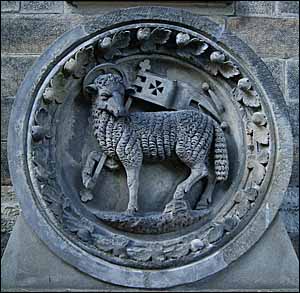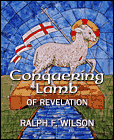Free E-Mail
Bible Studies
Beginning the Journey (for new Christians). en Español
Old Testament
Abraham
Jacob
Moses
Joshua
Gideon
David, Life of
Elijah
Psalms
Solomon
Songs of Ascent (Ps 120-135)
Isaiah
Advent/Messianic Scriptures
Daniel
Rebuild & Renew: Post-Exilic Books
Gospels
Christmas Incarnation
(Mt, Lk)
Sermon on the Mount
(Mt 5-7)
Mark
Luke's
Gospel
John's Gospel
7 Last Words of Christ
Parables
Jesus and the Kingdom
Resurrection
Apostle Peter
Acts
The Early Church
(Acts 1-12)
Apostle Paul
(Acts 12-28)
Paul's Epistles
Christ Powered Life (Rom 5-8)
1 Corinthians
2 Corinthians
Galatians
Ephesians
Vision for Church
(Eph)
Philippians
Colossians,
Philemon
1
& 2 Thessalonians
1 & 2 Timothy,
Titus
General Epistles
Hebrews
James
1 Peter
2 Peter, Jude
1, 2, and 3 John
Revelation
Revelation
Conquering Lamb of Revelation
Topical
Glorious Kingdom, The
Grace
Great Prayers
Holy Spirit, Disciple's Guide
Humility
Lamb of God
Listening for God's Voice
Lord's Supper
Names of God
Names of Jesus
Christian Art
About Us
Podcasts
Contact Us
Dr. Wilson's Books
Donations
Watercolors
Sitemap
Day 14. Following the Lamb Wherever He Goes (Revelation 14:4-5)
 Agnus Dei, relief at cemetery chapel in Dresden--Striesen, Germany. |
Yesterday, we considered the 144,000 standing with the Lamb on Mount Zion, marked with his name upon them, while a great chorus of praise rises in a new song before the throne. Now let's examine them further.
"4 It is these who have not defiled71 themselves with women, for they are virgins. It is these who follow the Lamb wherever he goes. These have been redeemed from mankind as firstfruits for God and the Lamb, 5 and in their mouth no lie was found, for they are blameless." (Revelation 14:4-5)
This passage is both powerful and mysterious.
If you take it literally, then you have 144,000 male virgins from the 12 tribes of Israel. What's more, it sounds like sexual relations defile a person, even if you're married -- which goes against what the New Testament teaches, especially in 1 Corinthians 7 and Matthew 19:4-6. Of course, it is impossible to understand Revelation without taking many elements as symbolic. After all, Revelation is apocalyptic literature, which, by its very nature, uses symbols to convey spiritual truths!72 I understand verses 4 and 5 as symbolic.
Characteristics of the 144,000 (Revelation 14:4-5)
Here are the characteristics of these 144,000"
"Redeemed from the earth" (Revelation 5:9-10). More on that in a moment.
"Chaste," "virgins" (ESV, NRSV, KJV), "they kept themselves pure" (NIV) translates the Greek word for "virgins."73 This probably refers to either those who refrained from physical adultery or sexual immorality (see the temptations in the churches of Pergamum and Thyatira in Revelation 2), or spiritual adultery, those who have kept themselves pure from all defiling relationships with the pagan world system.74
"Follow the Lamb wherever he goes" (Mark 8:34; John 10:27). We'll come back to this.
"First fruits."75 The word can be used as the beginning of the harvest with more to follow (1 Corinthians 15:20, 23), but also as that portion of the harvest which is wholly dedicated and given as an offering to God (James 1:18; Jeremiah 2:3).
"No lie." Truthfulness is characteristic of the Messiah's followers.76
"Spotless," ethically blameless (Ephesians 1:4; 5:27; Colossians 1:22).77 This is, of course, God's work, not our own. We are made spotless before God only by washing our robes in the atoning blood of the Lamb (Revelation 7:14). "This cup is the new covenant in my blood, which is poured out for many for the forgiveness of sins" (Matthew 26:28).
Redeemed from the Earth and from Mankind (Revelation 14:3, 4)
I'd like to highlight a couple of these characteristics. First, "redeemed from the earth" (Revelation 14:3), and "redeemed from mankind as firstfruits" (Revelation 14:4).
In both verses "redeemed" (ESV, NRSV, KJV), "purchased" (NIV) is agorazō, "to acquire things or services in exchange for money, buy, purchase," then, by extension, "to secure the rights to someone by paying a price, buy, acquire as property."78 This is the vocabulary of manumission from slavery. The theme is developed earlier in the New Testament.
"You are not your own, for you were bought79 with a price." (1 Corinthians 6:19b-20a)
"Care for the church of God, which he obtained80 with his own blood." (Acts 20:28b)
"You were ransomed81 from the futile ways inherited from your forefathers, not with perishable things such as silver or gold, but with the precious blood of Christ, like that of a lamb without blemish or spot." (1 Peter 1:18-19)
As former slaves, ransomed from the world, the flesh, and the devil, we are now free in Christ -- but only as we follow him. There are no "free agents" in the spiritual realm. If you're not following Christ, then you are being sucked downriver by the current of the devil-dominated world system (Ephesians 2:1-3).
There is a sense in which we are still servants (John 12:26; 15:20; Luke 17:7-10) -- though now we are voluntary bond-servants (Exodus 21:6). But we are also called friends (John 15:15).
Follow the Lamb Wherever He Goes (Revelation 14:4b)
This passage contains a phrase which I find amazing:
"It is these who follow the Lamb wherever he goes." (Revelation 14:4b)
Like many of the Lamb passages in Revelation, this one is incongruous. In real life, the lambs follow someone else. But in the Kingdom it's backwards. The disciples follow the Lamb who is their Shepherd.
The Greek word for "follow" is akoloutheō, "to follow or accompany someone who takes the lead, accompany, go along with." But in the New Testament it takes on a particular figurative meaning: "to follow someone as a disciple, be a disciple."82 A famous Jewish Rabbi would be accompanied by his disciples, who would follow him everywhere. This word akoloutheō is found in this sense in key passages in the Gospels.
"Jesus said to them, 'Follow me,83 and I will make you become fishers of men.' And immediately they left their nets and followed him." (Mark 1:17-18)
"[Jesus] found Philip and said to him, 'Follow me.'" (John 1:43)
"[Jesus] saw a man called Matthew sitting at the tax booth, and he said to him, 'Follow me.' And he rose and followed him." (Matthew 9:9)
"A scribe came up and said to him, 'Teacher, I will follow you wherever you go.'" (Matthew 8:19)
To the rich young ruler, Jesus said, "If you would be perfect, go, sell what you possess and give to the poor, and you will have treasure in heaven; and come, follow me." (Matthew 19:21)
Following Jesus
Following Jesus is, of course, what it's all about. There are many, many "Christians" or "believers" who don't follow Jesus. They "believe" in Jesus, that is, they give intellectual assent to the fact that he is the Son of God and Messiah. But they don't follow him, that is, they don't prayerfully determine where Jesus is leading them and obediently follow. They substitute a system of ethics for a personal relationship.
Following Jesus requires denying ourselves, obeying him rather than our own whims.
"If anyone would come after me,
let him deny himself and
take up his cross and
follow me." (Mark 8:34)
It means taking whatever persecution or flack comes to us from being known as a Jesus-follower in a secular world that is increasingly hostile to faithful Christians.
At the beginning of John's Gospel, Jesus is in Judea attending the revival services led by John the Baptist at the Jordan River. A number of Galileans are there. One day, John points out his cousin Jesus to some of his followers: "Look, the Lamb of God who takes away the sin of the world" (John 1:29, 36). These followers come to Jesus and begin to follow him (akoloutheō).
Jesus observes them and asks, "What do you want?"
They don't know what to say, so they blurt out, "Where are you staying?"
Jesus doesn't tell them. He just says, "Come and see."
 Available in PDF, and Kindle formats, |
And so Andrew and his friend follow Jesus around that day. They eventually discover where he is staying, but the next day they are following him again. It's not the destination that's important; it's the journey. It's the relationship that forms as we walk with Jesus, as we follow him. That is Life!
My friend, are you one of those who follows the Lamb wherever he goes? I hope so!
Prayer
Lord Jesus, we acknowledge you as our Savior, saving us from our sins and meaningless existence. We also acknowledge you as our Lord, the one we follow and obey as our rule of life. We love you. You have the words of life; where else can we go but to you. In your holy name, we pray. Amen.
Day 14 Meditation (Revelation 14:4-5). If you take this
verse symbolically, in what sense are the 144,000 described as virgins?
Truth-tellers? Blameless? Redeemed? In your life, what would it mean if you were
to "follow the Lamb wherever he goes"? What might have to change if you made
this pledge?
https://www.joyfulheart.com/forums/topic/1888-day-14-following/
Endnotes
(References and Abbreviations)
[71] "Defiled" is molynō, "to cause something to become dirty or soiled, stain, soil," then figuratively, "to cause something to be ritually impure, defile" (BDAG 657, 2).
[72] In the Old Testament you see the heavily symbolic nature of parts of Daniel and Ezekiel, and most of Zechariah.
[73] "Virgins" is parthenos, "one who has never engaged in sexual intercourse, virgin, chaste person" (BDAG 777, b).
[74] Compare 2 Kings 19:21; Jeremiah 18:13; 2 Corinthians 11:2; Revelation 17:2; 21:9.
[75] "Firstfruits" is aparchē, a cultic technical term, "first fruits, first portion" of any kind, which were holy to the divinity and were consecrated before the rest could be put to secular use" (BDAG 98, 1bα).
[76] "Lie" (ESV, NRSV, NIV), "guile" (KJV) is pseudos, "a lie, falsehood" (BDAG 1097). See Revelation 22:15; 21:27; Zephaniah 3:13.
[77] "Blameless" (ESV, NRSV, NIV), "without fault" (KJV) is amōmos, "pertaining to being without defect or blemish, unblemished" in the Septuagint, of the absence of defects in sacrificial animals, then figuratively, "pertaining to being without fault and therefore morally blameless, blameless" (BDAG 56, 2a). The phrase, "before the throne of God," at the end of verse 15 is found in the KJV, but not modern translations, since it is based on later manuscripts, such as some Latin manuscripts, the Clementine Vulgate, and the Byzantine text (Metzger, Textual Commentary, p. 753).
[78] Agorazō, BDAG 14, 2.
[79] Agorazō.
[80] Peripoieō, "to gain possession of something, acquire, obtain, gain for oneself" (BDAG 804, 2).
[81] Lytroō, "to free by paying a ransom, redeem" (BDAG 606, 1b).
[82] Akoloutheō, BDAG 36, 3.
[83] Deute, "Come here! Come on!" (BDAG 220).
Copyright © 2025, Ralph F. Wilson. <pastor![]() joyfulheart.com> All rights reserved. A single copy of this article is free. Do not put this on a website. See legal, copyright, and reprint information.
joyfulheart.com> All rights reserved. A single copy of this article is free. Do not put this on a website. See legal, copyright, and reprint information.

|

|
In-depth Bible study books
You can purchase one of Dr. Wilson's complete Bible studies in PDF, Kindle, or paperback format -- currently 48 books in the JesusWalk Bible Study Series.
Old Testament- Abraham, Faith of
- Jacob, Life of
- Moses the Reluctant Leader
- Joshua
- Gideon
- David, Life of
- Elijah
- Psalms
- Solomon
- Songs of Ascent (Psalms 120-134)
- Isaiah
- 28 Advent Scriptures (Messianic)
- Daniel
- Rebuild & Renew: Post-Exilic Books
Gospels
- Christmas Incarnation (Mt, Lk)
- Sermon on the Mount (Mt 5-7)
- Luke's Gospel
- John's Gospel
- Seven Last Words of Christ
- Parables
- Jesus and the Kingdom of God
- Resurrection and Easter Faith
- Apostle Peter
Acts
Pauline Epistles
- Romans 5-8 (Christ-Powered Life)
- 1 Corinthians
- 2 Corinthians
- Galatians
- Ephesians
- Philippians
- Colossians, Philemon
- 1 & 2 Thessalonians
- 1 &2 Timothy, Titus
General Epistles
Revelation
Topical
